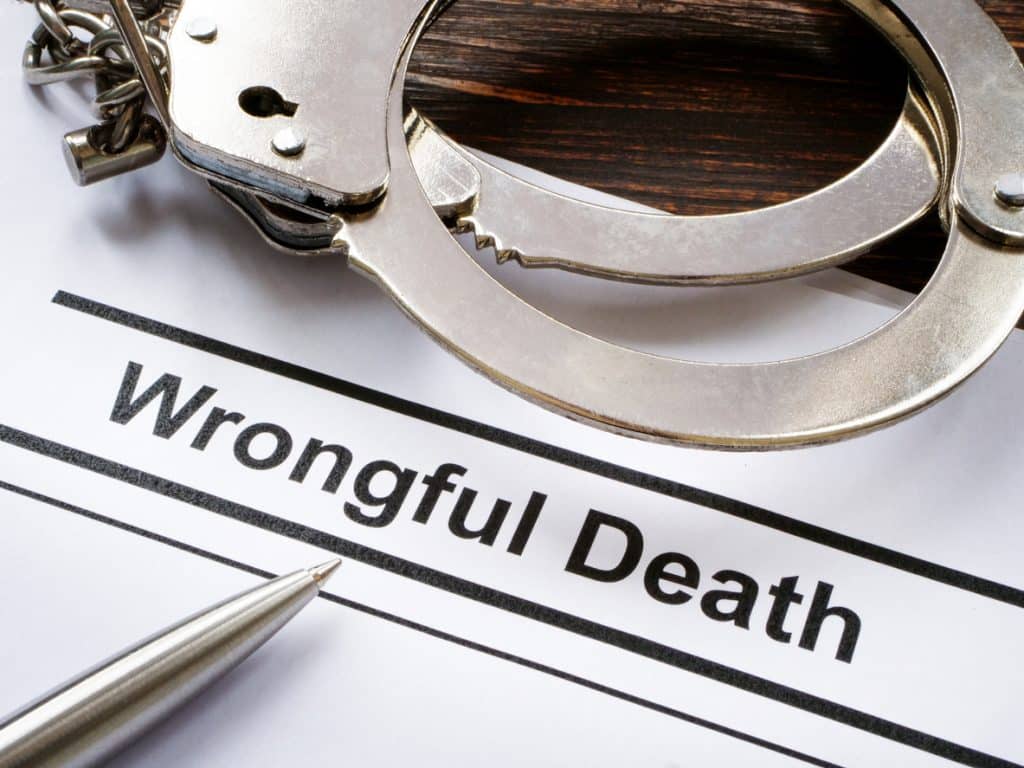When a wrongful death happens in Texas, there are two different legal cases that may be filed regarding the death— a criminal prosecution or a civil lawsuit for wrongful death.
Criminal charges for murder and manslaughter are filed by the police/government. However, families of the deceased may also pursue a wrongful death lawsuit— a civil procedure that lets loved ones directly sue a person or entity that may have contributed to the victim’s death. We’ll cover the consequences of each below.
Your wrongful death attorney at Patterson Personal Injury can help you identify defendants whose decisions played a part in the death of a loved one but who aren’t able to be charged under the criminal statutes.
The Differences and Consequences of a Criminal Charge vs. a Civil Lawsuit
Criminal prosecutions
- Defendants may face fines, incarceration, or restitution
- The stakes often involve a defendant’s freedom
- Criminal court judges can send defendants to jail
- Criminal cases may involve both jail time and monetary punishment
- Criminal law requires evidence beyond a reasonable doubt
Civil prosecutions
- The most common remedy is the payment of damages
- Civil court judges can order defendants to pay money or make decisions about their family or home
- The stakes are often money
- Civil cases generally only result in monetary damages or orders to do or not do something
- Civil law operates on a preponderance of evidence standard, which is a greater than 51-percent chance that the plaintiff’s claim is true
Reasons to File a Wrongful Death Lawsuit
When a wrongful death occurs, not only is there severe emotional and mental damages for the surviving family members, but also financial damages if the deceased contributed to household and/or familial expenses. Although we can’t undo the tragedy itself, here’s how we can help you:
- Recover Expenses – Criminal proceedings may put a defendant behind bars, but that won’t help with the medical expenses, funeral costs, and burial fees that an estate is left with.
Civil lawsuits are based on the legal principle that those most at fault should pay the price, not those left behind by their actions.
- Hold All Parties Responsible – Even in situations that result in criminal charges, prosecutors may not be able to charge all the parties that led to a wrongful death.
As an example, a drunk driver may be charged with manslaughter, but a wrongful death lawsuit may also name the bar that continued to sell alcohol or a friend who put the keys in their hand as defendants.
- Plan For the Estate – Damages for lost income, the lost companionship of a parent, or exemplary punitive damages can help plan for securing the future of survivors and their children in the absence of their family’s primary breadwinner.
- Lower Burden of Proof – A prosecutor may not file charges if they can’t meet the burden of proof in a criminal case, where guilt must be proven beyond any reasonable doubt.
In Texas civil cases, your attorney only has to prove a majority of the evidence, or more likely than not, that the defendant had a duty to behave in a certain manner, that they did not perform this duty, and as a direct result, a wrongful death occurred.
This covers not only criminal causes, like murder, but also negligence, recklessness, and other wrongdoing.
Who Can File Wrongful Death Lawsuits and How Long Do They Have to Make a Claim?
Under the Texas Civil Code, surviving family members of the deceased, including parents, children, and siblings– both naturally born and adopted –have two years from the date of their loved one’s death to file a wrongful death claim.
Your lawsuit is separate from any criminal proceedings, so it can be filed before a criminal trial goes to court, while it’s being adjudicated, or even if no criminal charges are filed.
Are there exceptions?
While some exceptions to the two-year filing window are made for fraud or newly discovered defendants, filing your lawsuit within the statute of limitations ensures your rights are protected and you may be compensated by those responsible— regardless of any criminal proceedings.
Get Help from an Experienced Wrongful Death Lawyer
With over 80 years of combined legal experience, we have the skills, expertise, and compassion to support you and help you get the justice you deserve.
There’s no cost for an initial consultation that lets you talk to a member of our team who’ll talk to you about your case, help you understand the next steps, and work hard from day one to protect your rights. Call Patterson Law Group at 817-784-2000 and get the help you need today.











